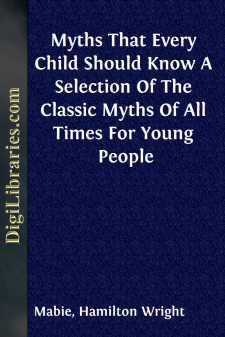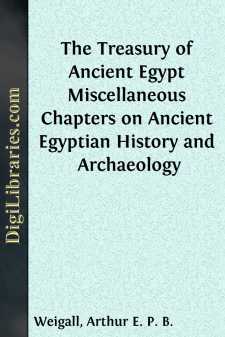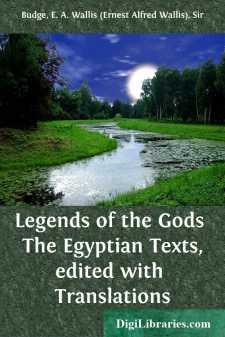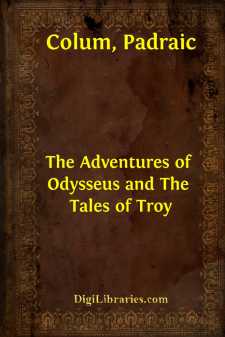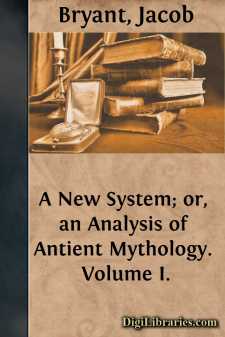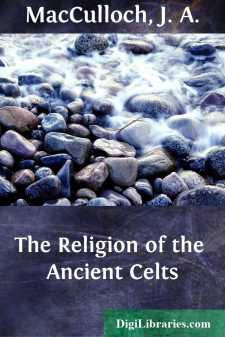Social Science
Social Science Books
Sort by:
PREFACE The period in which the story of The World's Desire is cast, was a period when, as Miss Braddon remarks of the age of the Plantagenets, "anything might happen." Recent discoveries, mainly by Dr. Schliemann and Mr. Flinders Petrie, have shown that there really was much intercourse between Heroic Greece, the Greece of the Achaeans, and the Egypt of the Ramessids. This connection,...
more...
CHAP. I.—OLYMPUS. am going to tell you the history of the most wonderful people who ever lived. But I have to begin with a good deal that is not true; for the people who descended from Japhet’s son Javan, and lived in the beautiful islands and peninsulas called Greece, were not trained in the knowledge of God like the Israelites, but had to guess for themselves. They made strange stories,...
more...
INTRODUCTION In many parts of the country when the soil is disturbed arrow heads are found. Now, it is a great many years since arrow heads have been used, and they were never used by the people who own the land in which they appear or by their ancestors. To explain the presence of these roughly cut pieces of stone we must recall the weapons with which the Indians fought when Englishmen, Frenchmen,...
more...
CHAPTER I. THE VALUE OF ARCHÆOLOGY. The archæologist whose business it is to bring to light by pick and spade the relics of bygone ages, is often accused of devoting his energies to work which is of no material profit to mankind at the present day. Archæology is an unapplied science, and, apart from its connection with what is called culture, the critic is inclined to judge it as a pleasant and...
more...
CHAPTER I Long before men awoke to the vision of America, the Old World was the scene of many stupendous migrations. One after another, the Goths, the Huns, the Saracens, the Turks, and the Tatars, by the sheer tidal force of their numbers threatened to engulf the ancient and medieval civilization of Europe. But neither in the motives prompting them nor in the effect they produced, nor yet in the...
more...
PREFACE The welcome which has been accorded to the volumes of this Series, and the fact that some of them have passed into second and third editions, suggest that these little books have been found useful by beginners in Egyptology and others. Hitherto the object of them has been to supply information about the Religion, Magic, Language, and History of the ancient Egyptians, and to provide editions of...
more...
by:
Padraic Colum
I his is the story of Odysseus, the most renowned of all the heroes the Greek poets have told us of—of Odysseus, his wars and his wanderings. And this story of Odysseus begins with his son, the youth who was called Telemachus. It was when Telemachus was a child of a month old that a messenger came from Agamemnon, the Great King, bidding Odysseus betake himself to the war against Troy that the Kings...
more...
by:
Jacob Bryant
The earliest authentic account we can obtain of the birth of this learned and celebrated writer, is from the Register Book of Eton College, in which he is entered "of Chatham, in the county of Kent, of the age of twelve years, in 1730,"—consequently, born in 1718. Whence a difference has arisen between the dates in this entry, and the inscription on his monument, hereafter given, we are...
more...
by:
Edward Anwyl
CHAPTER I—INTRODUCTORY: THE CELTS In dealing with the subject of ‘Celtic Religion’ the first duty of the writer is to explain the sense in which the term ‘Celtic’ will be used in this work. It will be used in reference to those countries and districts which, in historic times, have been at one time or other mainly of Celtic speech. It does not follow that all the races which spoke a form...
more...
by:
J. A. MacCulloch
CHAPTER I. INTRODUCTORY. To summon a dead religion from its forgotten grave and to make it tell its story, would require an enchanter's wand. Other old faiths, of Egypt, Babylon, Greece, Rome, are known to us. But in their case liturgies, myths, theogonies, theologies, and the accessories of cult, remain to yield their report of the outward form of human belief and aspiration. How scanty, on the...
more...




